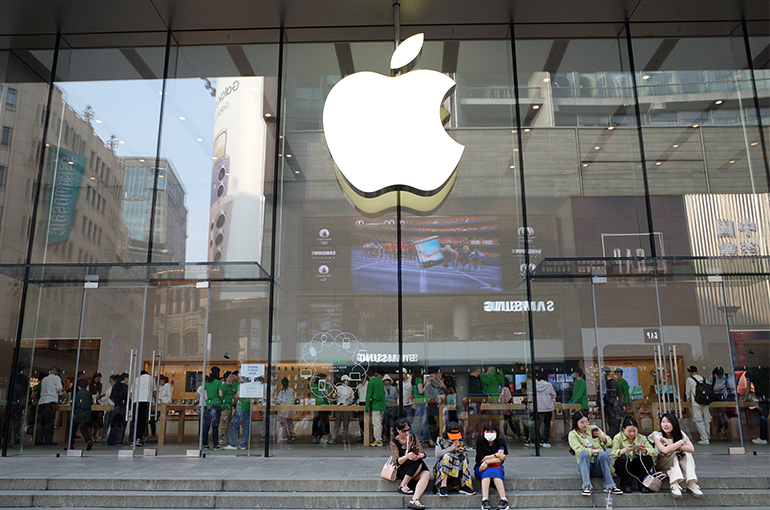 Apple Wins Anti-Monopoly Lawsuit Against Chinese Consumer
Apple Wins Anti-Monopoly Lawsuit Against Chinese Consumer(Yicai) May 30 -- Apple has won an anti-monopoly lawsuit that a Chinese consumer had filed against the US tech giant after he was forced to use Apple Pay for a purchase on the App Store.
Apple does have a dominant market position in the Chinese software market but did not abuse it, according to the first-instance ruling of the Shanghai Intellectual Property Court.
In January 2021, a Chinese consumer surnamed Jin sued Apple because the company was charging a commission of 30 percent of the transaction amount for purchases on the App Store, which could only be completed through Apple Pay. Jin demanded a compensation of CNY100,000 (USD13,790) and a public apology.
“I respect the judgment of the court of first instance, but insist that Apple’s practice of charging the highest commission in China without opening to third-party payment methods and download channels is an abuse of market dominance,” Wang Qiongfei, the founding partner of Zhejiang Kin Ding Law Firm, the law firm representing Jin, told Yicai. “I will appeal this case to the Supreme People’s Court.”
The Shanghai IP Court said it could not ascertain the specific costs of Apple on the operation of the App Store, given its huge operating system, therefore it could not calculate the difference between costs and commissions on the App Store. Without the number, the court was unable to determine if the commission was too high.
Moreover, the same product is more expensive on the App Store than on Android’s app stores, Wang pointed out. For example, Apple users often pay more than Android users when buying virtual goods, such as live-streaming tips, audio and video memberships, and content subscriptions.
Apple charges companies in China a 30 percent commission and small companies a 15 percent commission, the highest percentages worldwide, Yicai found. In the US, the commissions are 27 percent and 12 percent, respectively.
Editor: Futura Costaglione